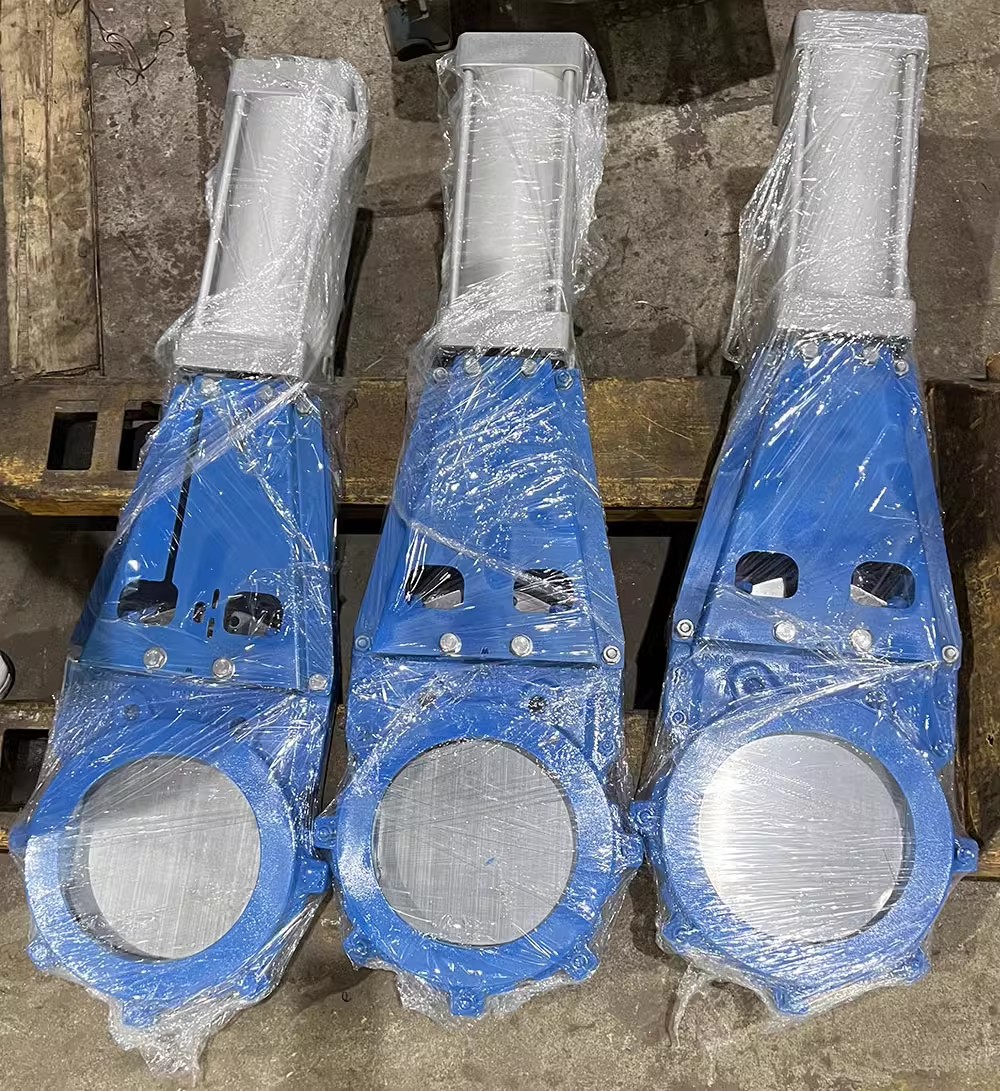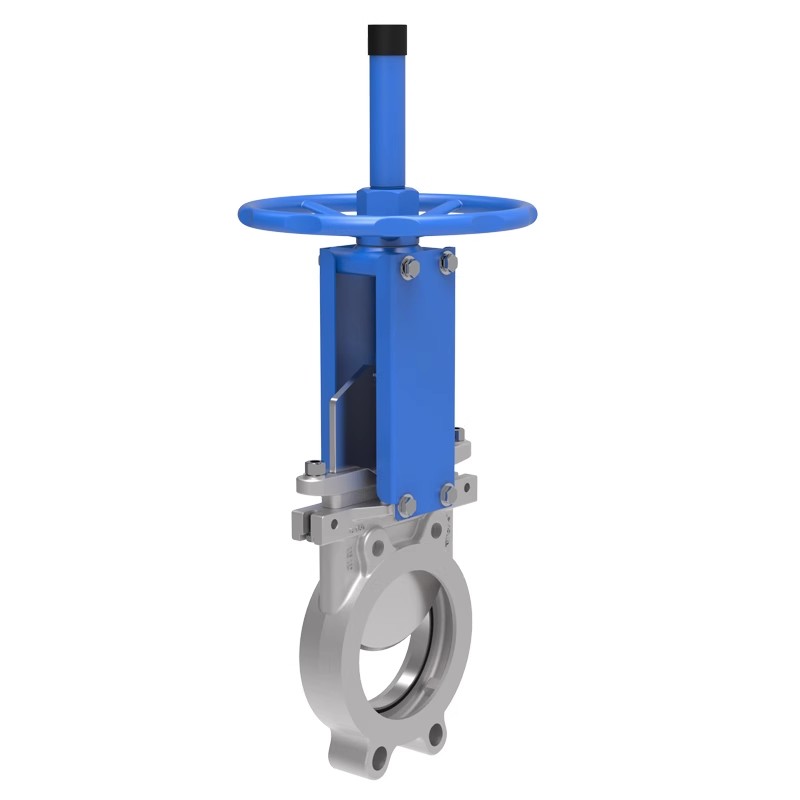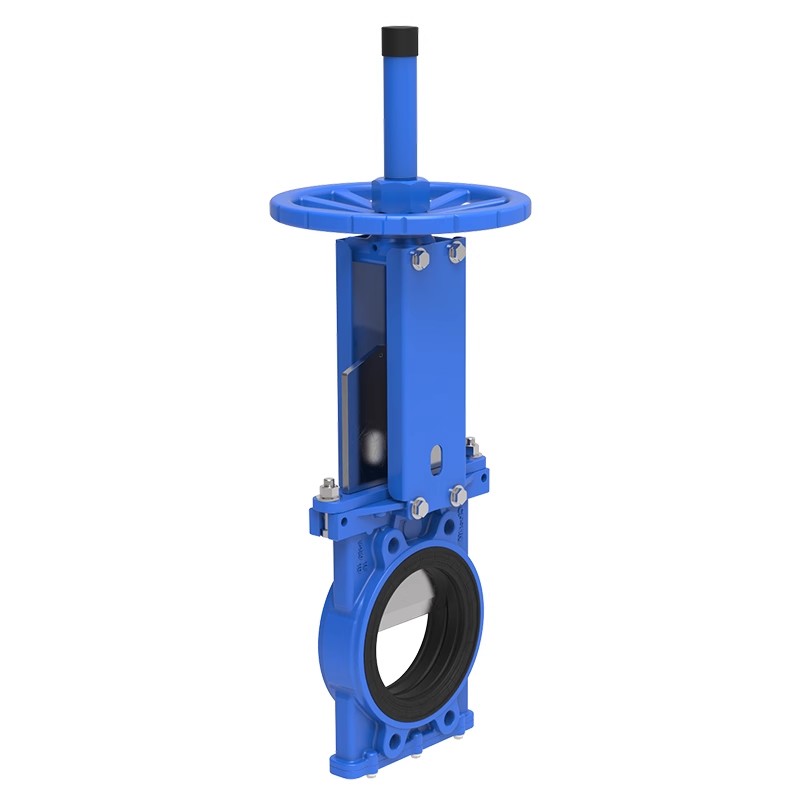Innovative Knife Gate Valves: Polyurethane PTFE PVC and More
- SZSPSK
- 2024-11-29 18:00
Key Takeaways
Advancements in Polyurethane Knife Gate Valves: Performance and Benefits
Exploring PTFE Lined Knife Gate Valves: Applications and Features
The Versatility of PVC Knife Gate Valves: A Comprehensive Overview
Comparative Analysis of Praher and Reiss Knife Gate Valves: Choosing the Right Valve for Your Needs
FAQs
Key Takeaways
Understanding the recent advancements in knife gate valve technology provides clarity on the options available for various industrial applications. Polyurethane knife gate valves stand out for their excellent durability and resistance to wear, making them suitable for handling abrasive materials. Enhanced sealing capabilities and lower maintenance requirements further underscore their efficiency. We recognize the advantages of PTFE lined knife gate valves, particularly in environments dealing with corrosive fluids where chemical resistance is paramount. Their design ensures that they maintain integrity over extended periods, minimizing the risk of leakage and operational failures.
The PVC knife gate valve, particularly from leading manufacturers like Valterra, offers a lightweight and cost-effective solution without compromising on performance. Their versatility makes them suitable for diverse applications including drainage systems and wastewater management. Furthermore, comparing Praher and Reiss knife gate valves reveals crucial differences; we find that Praher’s designs tend to excel in high-pressure systems while Reiss valves demonstrate greater adaptability across various chemical processes. Ultimately, selecting the right valve requires careful consideration of application requirements to optimize performance and reliability in any given installation.
Advancements in Polyurethane Knife Gate Valves: Performance and Benefits
We observe significant innovation in the realm of polyurethane knife gate valves. These valves are crafted using high-performance polyurethane, which enhances their durability and resistance to wear. Unlike conventional materials, the use of polyurethane allows for greater flexibility and strength, making them suitable for a variety of challenging environments, especially in industries such as waste management and chemical processing.
The friction properties of polyurethane contribute to smoother operation, reducing wear on both the valve and its fixtures. This leads to lower maintenance costs and extended service life. Additionally, the sealing capabilities of these valves are noteworthy, as they can provide effective sealing even under challenging pressure conditions.
Comparative studies highlight that polyurethane knife gate valves generally outperform traditional models in terms of both life cycle costs and operational efficiency. The benefits extend beyond economic factors; reliability under pressure makes these valves a preferred choice for many systems where flow control is critical.
Technical Specifications
Feature | Specification |
|---|---|
Material | Polyurethane |
Maximum Pressure Rating | Up to 150 psi |
Temperature Range | -40°F to 180°F |
Actuation Type | Manual / Pneumatic / Electric |
Application | Wastewater, Chemical Processing |
Innovation continues as manufacturers explore advanced designs that further enhance functionality without compromising durability. In our experience, understanding these advancements is vital for selecting the best valve type suited for specific operational requirements.
Exploring PTFE Lined Knife Gate Valves: Applications and Features
PTFE lined knife gate valves offer a unique advantage in industries requiring excellent resistance to corrosion and chemical attack. This lining provides an additional layer of protection, making these valves suitable for handling aggressive materials that regular valve components may not withstand. In applications such as wastewater management, chemical processing, and pulp and paper production, the PTFE lining enhances durability while ensuring minimal material adhesion. Our choice of a PTFE lined knife gate valve can significantly reduce maintenance costs due to its remarkable resilience, leading to extended service life.
In industrial setups, the versatility of these valves proves invaluable, especially when dealing with slurry or viscous fluids. The design facilitates smooth operation while minimizing leakage risk, which is paramount for environmental safety. Furthermore, the ability to achieve tight shut-off ensures operational efficiency, thereby contributing to overall system performance.
“Selecting a valve with adequate chemical compatibility is vital for optimizing process performance.”
For organizations that operate under stringent regulatory frameworks, employing PTFE lined knife gate valves provides both compliance assurance and operational integrity. As we evaluate our options in valve technology, embracing innovations like these positions us favorably in maintaining competitive efficiency and reliability within our projects. The growing trend among engineers highlights the evolution toward integrating high-performance materials into core engineering solutions.
The technical capabilities of PTFE lined knife gate valves resonate well with our commitment to utilizing advanced technology in achieving superior functionality across diverse applications.

The Versatility of PVC Knife Gate Valves: A Comprehensive Overview
PVC knife gate valves are essential components in various industrial applications, offering unique attributes that simplify fluid control. The lightweight nature of PVC allows for easy handling and installation, minimizing labor costs. Their resistance to corrosion enhances durability, making them suitable for environments where exposure to chemicals is prevalent. These valves excel in applications involving water, wastewater treatment, and even in certain food processing scenarios. The design of the knife gate valve facilitates a tight seal and smooth operation, ensuring that the flow can be easily interrupted or resumed without leakage.
One significant advantage is their ability to handle slurries and viscous materials without clogging, which is often a challenge for other valve types. Furthermore, the cost-effectiveness of PVC knife gate valves makes them an appealing choice in budget-conscious projects. Compared to metal options, the thermal conductivity of PVC is comparatively lower, which can be beneficial in systems sensitive to temperature fluctuations.
Choosing PVC knife gate valves contributes not only to operational efficiency but also supports sustainability goals by reducing energy consumption during transportation and installation. These attributes position PVC knife gate valves as a versatile solution across multiple industries, reinforcing their importance in modern fluid control systems.

Comparative Analysis of Praher and Reiss Knife Gate Valves: Choosing the Right Valve for Your Needs
When selecting between Praher and Reiss knife gate valves, several factors play a crucial role. Praher knife gate valves are renowned for their robust construction and versatility, making them a preferred choice in various applications, particularly in demanding environments. Their unique design minimizes leakage and provides reliable flow control, which is vital for operations involving fluids with varying viscosities. The Reiss knife gate valves, on the other hand, offer advanced sealing mechanisms that enhance performance under high-pressure conditions. The materials used in their construction often include corrosion-resistant elements, which significantly extend the lifespan of these valves, especially in aggressive media.
Each brand presents distinct advantages depending on operational needs. For instance, while Praher valves excel in ease of maintenance and are often more cost-effective for standard applications, Reiss valves may be favored when dealing with extreme pressure fluctuations or corrosive substances due to their engineered resilience. Understanding the specific requirements of your system will guide us in making an informed decision that balances performance, durability, and cost considerations effectively.
In summary, evaluating both Praher and Reiss knife gate valves entails a thorough analysis of application-specific demands to ensure optimal functionality. It is imperative to consider factors such as operating conditions and maintenance capabilities to select the most suitable valve for our particular needs.

Conclusion
The evolution of knife gate valves has brought significant advancements across various materials, emphasizing the particular advantages of polyurethane, PTFE, and PVC options. We observe that the innovative designs of Praher and Reiss knife gate valves showcase remarkable engineering prowess. Both types deliver robust performance, yet each presents unique characteristics tailored to specific applications. The integration of polyurethane offers outstanding wear resistance, extending the lifespan of valves in demanding conditions. Similarly, PTFE-lined solutions demonstrate exceptional chemical resistance, making them suitable for harsh environments. Meanwhile, the versatility of PVC knife gate valves positions them as cost-effective options across numerous sectors. Selecting the right valve entails understanding the operational requirements and environmental challenges faced within each application. Ultimately, embracing these advanced valve technologies not only enhances reliability but also optimizes overall system performance. The progression in this field signals a promising future for industries reliant on effective fluid management solutions.
FAQs
What materials are typically used in knife gate valves?
Knife gate valves are commonly manufactured using polyurethane, PTFE, and PVC. Each material offers specific advantages for diverse applications.
What are the benefits of using polyurethane knife gate valves?
Polyurethane knife gate valves provide excellent abrasion resistance and durability, making them ideal for applications involving solids and slurries. Their flexibility enhances sealing capabilities.
How do PTFE lined knife gate valves perform under different conditions?
PTFE lined knife gate valves are highly resistant to chemicals, high temperatures, and provide superior sealing properties. They are particularly effective in corrosive environments.
In which scenarios is a PVC knife gate valve preferred?
A PVC knife gate valve is lightweight, cost-effective, and suitable for applications involving water, wastewater, and certain chemicals. Its resistance to corrosion makes it a reliable choice.
What features distinguish Praher and Reiss knife gate valves?
Both Praher and Reiss knife gate valves offer unique design elements. Praher valves are known for their robust construction suitable for high-pressure applications. Reiss valves often feature enhanced flow efficiency due to their optimized geometry.





